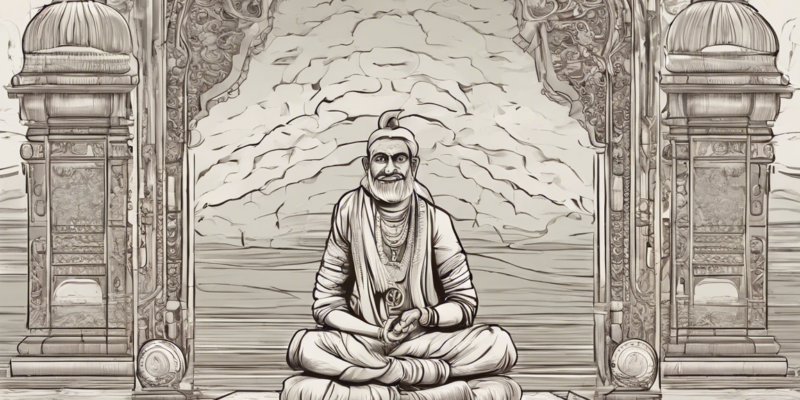When it comes to the education sector in India, the Education Minister, known as “Shiksha Mantri” in Hindi, plays a pivotal role in shaping the policies and direction of the country’s educational system. The Education Minister is responsible for overseeing the development and implementation of educational initiatives, curriculum reforms, and ensuring the overall quality of education across the country. In this article, we will delve into the role of the Education Minister in India, their key responsibilities, recent developments in the education sector, and frequently asked questions about the Education Minister in India.
Role of the Education Minister in India
The Education Minister in India is a key figure in the government, responsible for the formulation and implementation of policies related to education. The Education Minister oversees various aspects of the education sector, including school education, higher education, vocational education, and skill development. The key responsibilities of the Education Minister include:
1. Policy Formulation
The Education Minister is responsible for formulating policies that govern the education sector in India. These policies aim to improve access to education, enhance the quality of teaching and learning, and promote innovation in the field of education.
2. Curriculum Development
The Education Minister plays a crucial role in shaping the curriculum followed in schools and higher education institutions. The curriculum is designed to provide students with a well-rounded education that equips them with the necessary knowledge and skills to succeed in the modern world.
3. Infrastructure Development
Ensuring access to quality education for all students requires adequate infrastructure in schools and colleges. The Education Minister is tasked with overseeing the development of educational infrastructure to support a conducive learning environment.
4. Teacher Training and Development
Teachers play a vital role in shaping the future of students. The Education Minister is involved in designing programs for the training and professional development of teachers to enhance their teaching skills and pedagogical techniques.
5. Promoting Educational Reforms
The Education Minister works towards introducing reforms in the education sector to address challenges such as access to education, quality of education, and aligning the curriculum with the needs of the modern workforce.
Current Education Minister in India
As of 2021, the Education Minister in India is Dharmendra Pradhan. He assumed office as the Education Minister in July 2021, following a cabinet reshuffle by the Government of India. Dharmendra Pradhan has been actively involved in various initiatives to promote education and skill development in the country.
Recent Developments in the Education Sector
The education sector in India has witnessed several important developments in recent years. Some of the key initiatives and reforms introduced by the Education Minister and the government include:
1. National Education Policy (NEP) 2020
The National Education Policy 2020 introduced sweeping reforms in the education sector, aimed at making education more holistic, multidisciplinary, and geared towards promoting critical thinking and creativity among students.
2. Skill Development Programs
The government has placed a strong emphasis on skill development programs to equip students with the skills required for the modern workforce. Initiatives such as Skill India aim to bridge the gap between education and employment.
3. Digital Learning Initiatives
With the advent of technology, the government has introduced various digital learning initiatives to enhance access to education and promote online learning platforms.
4. Promoting Research and Innovation
Efforts have been made to promote research and innovation in the education sector through initiatives such as the Atal Innovation Mission and setting up research institutions.
Frequently Asked Questions (FAQs) about the Education Minister in India
1. Who appoints the Education Minister in India?
The Education Minister in India is appointed by the Prime Minister of India.
2. How is the Education Minister different from the HRD Minister?
The Education Minister is responsible for overseeing the entire education sector, including school and higher education, whereas the HRD (Human Resource Development) Minister typically focuses on aspects related to human resource development.
3. What qualifications are required to become the Education Minister in India?
There are no specific qualifications mandated to become the Education Minister in India. However, a background in education, public policy, or related fields is beneficial.
4. What are the key challenges faced by the Education Minister in India?
Some of the key challenges faced by the Education Minister in India include improving access to quality education, addressing the digital divide, enhancing teacher training, and aligning the curriculum with industry requirements.
5. How does the Education Minister collaborate with state governments?
The Education Minister collaborates with state governments through forums such as the Central Advisory Board of Education (CABE) to discuss and implement education policies at the national and state levels.
In conclusion, the Education Minister in India plays a crucial role in shaping the educational landscape of the country. Through policy formulation, curriculum development, infrastructure enhancements, and promoting educational reforms, the Education Minister works towards improving the quality of education and ensuring equitable access to learning opportunities for all. With ongoing initiatives and reforms, the education sector in India is poised for transformation under the guidance of the Education Minister.

